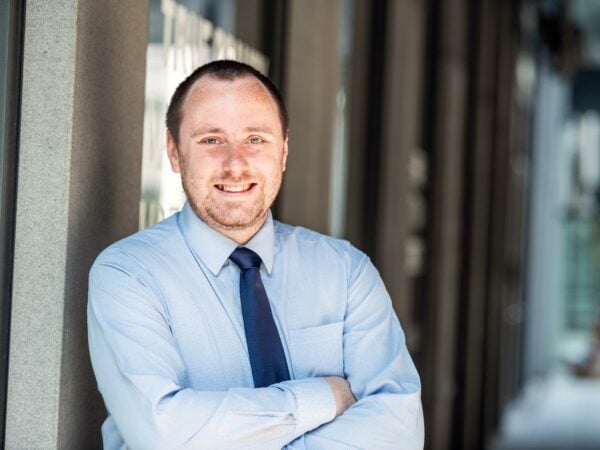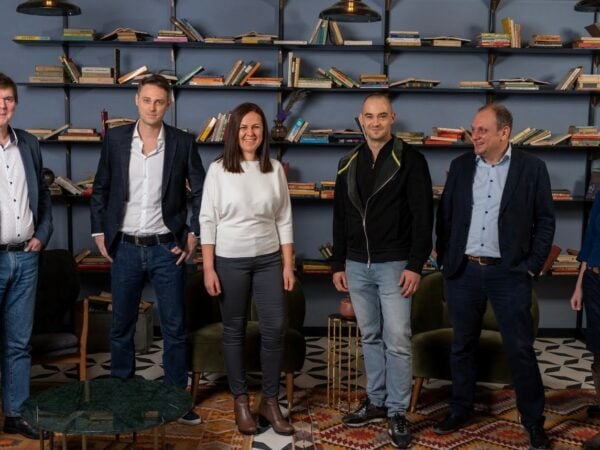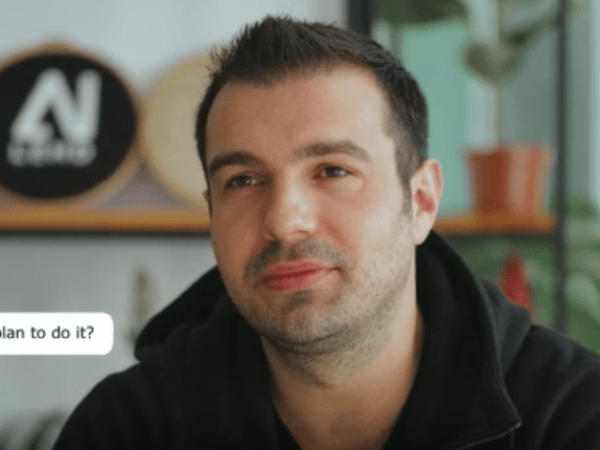Petr Dvořák is a CEO at Wultra, a company that provides leading banks and fintech companies with security solutions for their internet and mobile apps. Thanks to solutions by Wultra, financial institutions can meet compliance with the regulatory requirements, and more importantly, detect and stop cyberattacks and protect their apps against a wide range of threats.
What services does Wultra provide?
To be brief, we secure digital finance against various types of threats within several channels. Our services are used by both traditional banks and fintech challengers and can be divided into three categories. The first is authentication, where we take care of only letting the right person in. Then, we protect against device-related threats like malware, and last but not least, we shield users from more sophisticated attacks, for instance, phishing. These can be deployed separately or all at once, such as in the Czech Raiffeisenbank’s mobile app, eKonto. All in all, we take care of the thankless task of providing security measures for fintechs and banks, so they can fully focus on client-centric solutions.
Currently, where around the world might one run into financial institutions that use Wultra products?
We currently operate in most Balkan countries, Romania, Slovakia, France, the United States, and understandably, our starting point – Czechia. The main factor is that digital financial security is a universal product, as the login process tends to be the same everywhere. Also, external threats are the same worldwide, and we believe that global problems require global solutions.
What was your initial motivation for scaling up to the different regions of CEE?
The Czech financial market is obviously limited in size. Thus, to scale, we had to choose whether to widen our services into additional segments or expand to new markets. We prefer creating a specific, precision-driven, meticulously designed, and narrowly targeted product, like a Swiss watch, to making everything for everyone, ending up with products that are variable in terms of use cases at the cost of less precise service. Therefore, it was a choice driven by necessity, and one day, we simply contacted various local banks in Albania and booked a flight.
What was your reasoning behind selecting Albania as the vanguard country?
This choice was driven by various factors. Because it is not exactly traditional for Czech companies to expand significantly, we aimed at first to learn how to do it. Thus, we chose a market similar to ours, where the dynamic is more relationship-based than transactional and is not so far away in geographical terms. Moreover, it is a country close to joining the EU, with correspondingly developing security legislation, where we identified the potential to raise the bar for security throughout the whole market. Besides that, Albania was an excellent entry point into the Balkans. It will grow significantly in the near future, similarly to the economic tigers of Central Europe, such as Czechia or Slovakia during the 00 s, and it is a good idea to be there early and prepared.
This is not a market for one-year success stories, and it is certainly not easy to enter. The dynamic is very distinct, and more importantly, as I mentioned earlier, the market is currently in the acceleration phase of aiming for its great potential.
Are there any specifics of the region that have caught you off guard? What are your recommendations for other fintechs and startups that would like to expand there?
You should not underestimate the amount of homework you have to do and come in with overly high expectations. Many enterprises think that you can scale for free, that you will translate your website, send a few emails, and everyone will be waiting for you in particular. Instead, it takes a lot of research, trying out many things, especially in our eastern region, and building trust, which takes time. This brings me to the second widespread problem – impatience. This is not a market for one-year success stories, and it is certainly not easy to enter. The dynamic is very distinct, and more importantly, as I mentioned earlier, the market is currently in the acceleration phase of aiming for its great potential. Moreover, the biggest lesson is that no actions ever work systematically and as planned. Actually, the best you can do is to increase the probability of success – for example, thanks to our partner in Albania, we have started cooperating with their US developers, which has been quite an unpredictable journey by itself.




